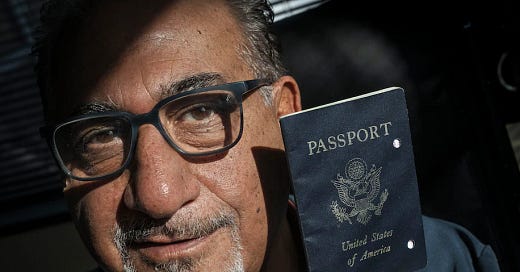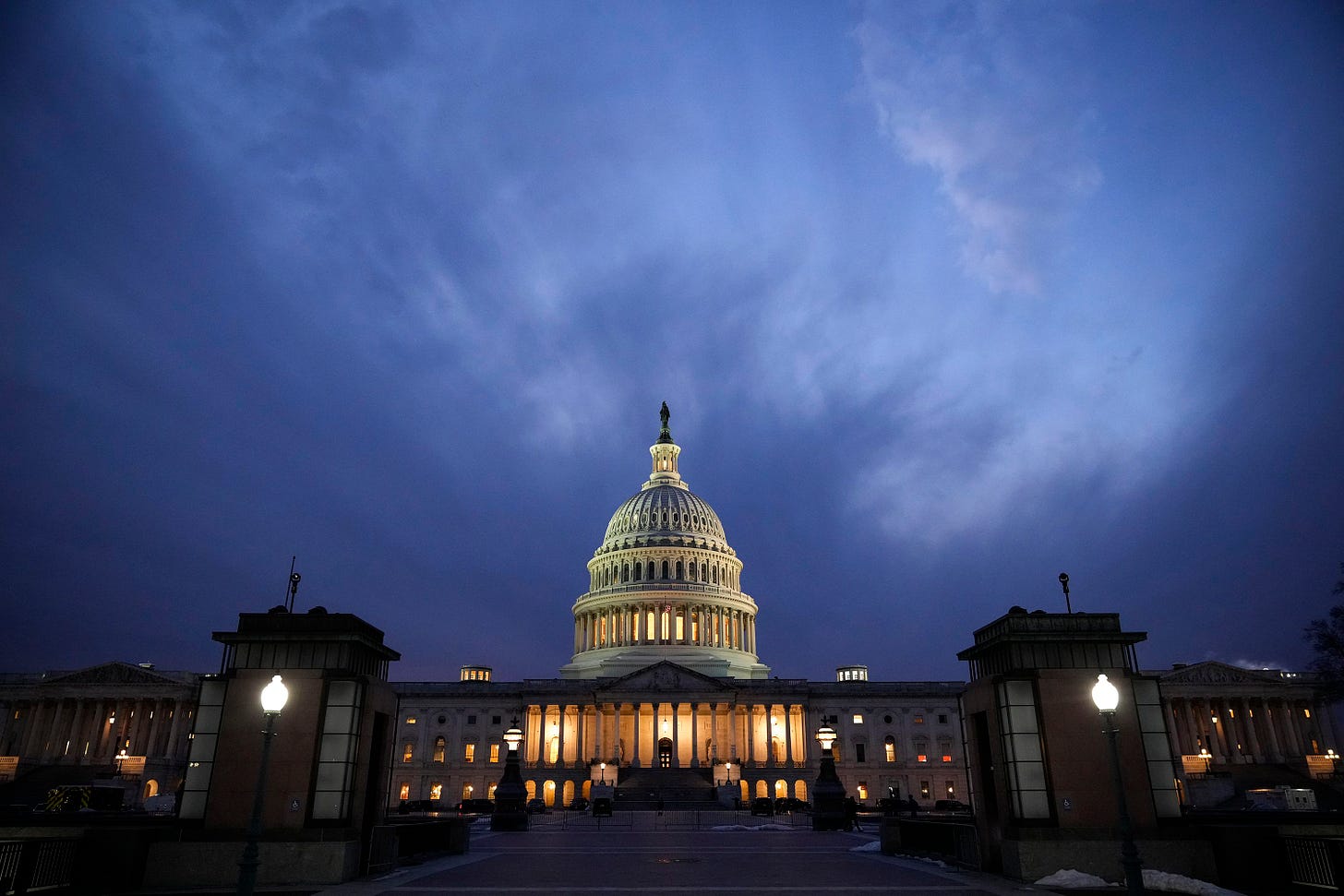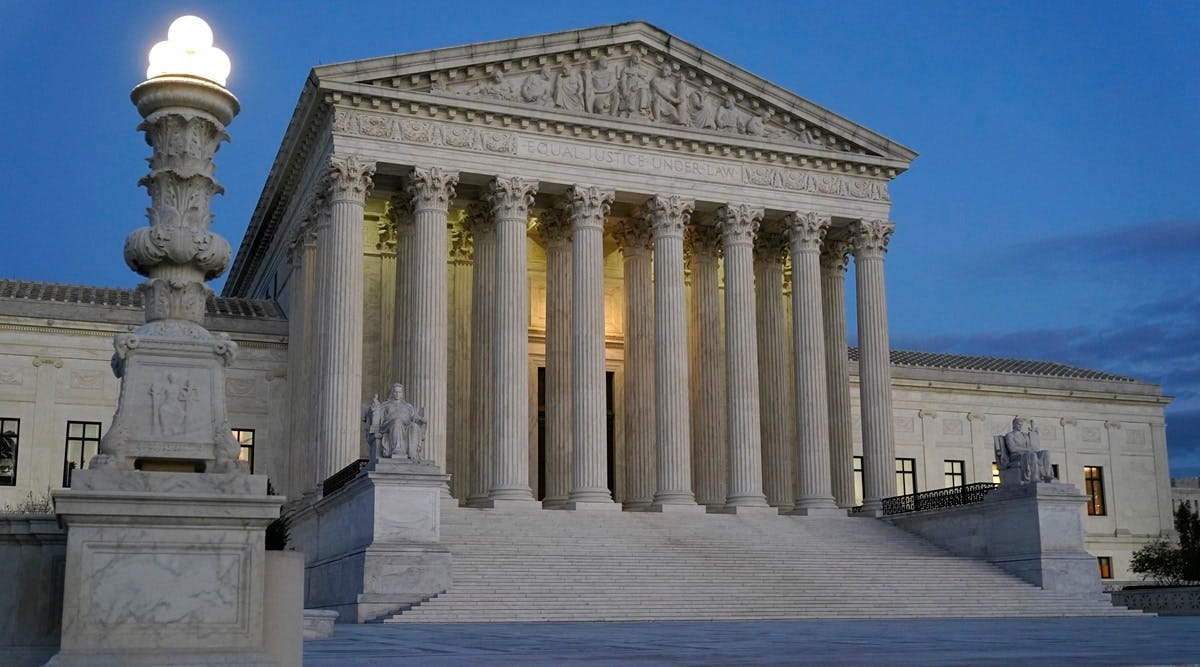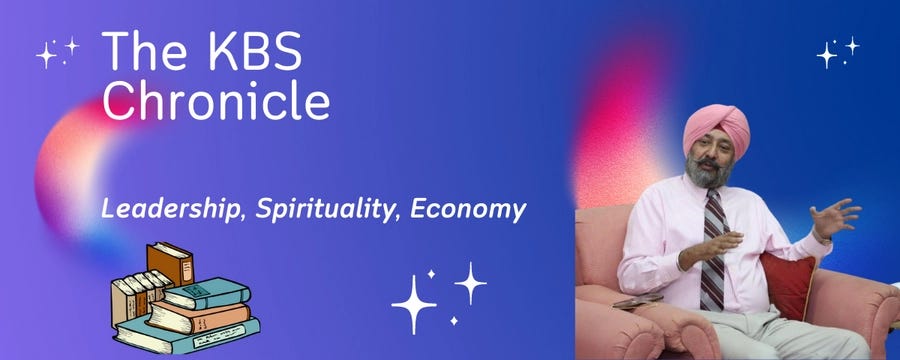US-born Doctor Stripped of US Citizenship, after Six Decades
The Intricacies of the US Citizenship: The Curious Case of Dr. Siavash Sobhani, with Iranian Parents, and the Fourteenth Amendment.
Introduction: An Unforeseen Citizenship Crisis
In an extraordinary turn of events, Dr. Siavash Sobhani, a 61-year-old doctor from Northern Virginia, has been officially informed, after more than six decades since his birth, that he is not a U.S. citizen. This unexpected development, despite being born on U.S. soil in Washington D.C. to Iranian parents in 1961, emerged during a routine renewal of his long-held U.S. passport. The root of this bizarre revelation is tied to a specific interpretation of the Fourteenth Amendment of the U.S. Constitution, highlighting a rare but impactful legal anomaly.
The Constitutional Question: Interpreting the 14th Fourteenth Amendment
In the labyrinth of Dr. Sobhani's citizenship crisis lies a critical interpretation of the Fourteenth Amendment of the U.S. Constitution. The cornerstone of this dilemma is encapsulated in the Amendment's first sentence: "All persons born or naturalized in the United States, and subject to the jurisdiction thereof, are citizens of the United States and of the State wherein they reside." The phrase pivotal to Dr. Sobhani's situation is "subject to the jurisdiction thereof." Legal interpretations conclude that this excludes children born in the U.S. to foreign diplomats, who, under diplomatic immunity, are not considered subject to U.S. jurisdiction. Consequently, these children, despite being born on U.S. soil, do not automatically receive U.S. citizenship.
Diplomatic Immunity: A Key Factor
Dr. Sobhani's unique citizenship predicament is intricately linked to his father's employment status at the time of his birth. Employed temporarily at the Iranian Embassy in Washington D.C., his father's diplomatic position inadvertently bestowed upon young Sobhani diplomatic immunity. This immunity, a privilege in the realm of international relations, paradoxically positioned him outside the jurisdiction of the United States, as per the interpretation of the Fourteenth Amendment. This extraordinary situation meant that despite being born in the U.S., the constitutional safeguard of birthright citizenship did not apply to him. The official oversight in granting him citizenship initially thus became null and void, entangling Dr. Sobhani in a complex legal and constitutional web.
The Paradox of Birthright Citizenship: A Legal Conundrum
This striking case of Dr. Sobhani illuminates a lesser-known, yet significant aspect of U.S. citizenship laws that juxtaposes two drastically different scenarios. On one hand, children born on U.S. soil to undocumented and illegal immigrants are automatically bestowed with U.S. citizenship. On the other, children born under similar geographical circumstances but to foreign diplomats are exempt from this privilege. This legal dichotomy, deeply rooted in the international doctrine of diplomatic immunity, unveils a nuanced and, some might argue, archaic aspect of U.S. legislation. Particularly in instances like that of Dr. Sobhani, it raises critical questions about the equitable application of citizenship laws and the complex interplay between international protocols and domestic legal frameworks.
The Human Cost: Dr. Sobhani's State of Statelessness
Dr. Siavash Sobhani, now technically and legally stateless, finds himself in a precarious and distressing situation. The unforeseen revocation of his citizenship has thrust him into a realm of uncertainty and vulnerability. Professionally, as a doctor who has served his community for decades, his right to practice medicine is now under a cloud. Personally, the implications are profound and far-reaching. His social security entitlements, accumulated over a lifetime of work, hang in the balance. Moreover, his fundamental freedoms, such as the right to travel and live without fear of deportation, are now in jeopardy. This administrative oversight, a misinterpretation of his citizenship status, has led to significant personal and professional turmoil, underscoring the often-overlooked human impact of bureaucratic decisions.
Identity and Belonging: The Personal Toll of Legal Intricacies
The plight of Dr. Sobhani transcends mere legal technicalities, striking at the very core of personal identity and belonging. His ordeal, unfolding over half a century after his birth, poignantly highlights the profound and lasting impact of legal nuances on individual lives. A dedicated physician, Dr. Sobhani has been an integral part of his Virginia community for over 30 years, contributing significantly to public health and welfare. Yet, the abrupt disruption of his citizenship status casts a shadow not just on his legal standing, but also on his sense of self and belonging. This case brings into sharp focus the often unseen human consequences of administrative oversights and errors, challenging our understanding of identity and community in the face of bureaucratic complexities.
Navigating Uncharted Waters: Seeking Legal Redress and Reform
Dr. Sobhani's journey towards resolving his citizenship status is a complex and costly endeavor, marked by a significant expenditure exceeding $40,000 in legal fees. This challenging path underscores the need for a thorough reevaluation of U.S. citizenship laws, particularly those affecting children of diplomats born on American soil. While the offer of a "green card" provides a temporary solution, it falls short of restoring the full spectrum of rights and privileges he previously enjoyed as a U.S. citizen. The absence of a valid passport has curtailed his freedom of international travel, severely impacting both personal and professional aspects of his life. Dr. Sobhani's case, therefore, is not just about rectifying a personal issue; it symbolizes a broader call for legislative reform. It highlights the necessity for a more equitable and empathetic approach to citizenship laws, one that recognizes the unique circumstances of individuals and mitigates the unintended consequences of legal oversights.
Conclusion: A Quest for Fairness and Identity
Dr. Sobhani's journey highlights the complex interplay between constitutional law and individual rights. It underscores the need for a legal system that not only adheres to constitutional provisions but also considers the profound impact of its interpretations on human lives. The hope is that this case will not only resolve favorably for Dr. Sobhani but also inspire a more equitable handling of similar cases in the future. USICS promises to consider his case sympathetically but they have neither assured him any timeline for resolution nor guaranteed him a positive outcome. Dr Sobhani says he’s thankful to be accorded the status of “permanent resident”, rather than being deported to Iran or consigned to a federal prison.
Thank heavens for small mercies!








The story wakes us up all immigrants specially who are naturalized citizens. Based on personal experience, I know the following.
1. USCIS is fairest institution if your petition has no misrepresentation of facts. Here , he made no error , if he was not entitled or eligible , the system made an error. The other fact that will support him is his parents being from Iran. He was given status at the time Shah of Iran was strongest ally and friend of US versus now Iran being the opposite , makes a strong case for humanitarian consideration.
2. Your local community that includes your city,state and federal elected representatives will come out and support him.
You rightly pointed out , positive outcome will set precedent for future and benefit others.
3. Justice and fairness will prevail here. It always does. I
It did for me !